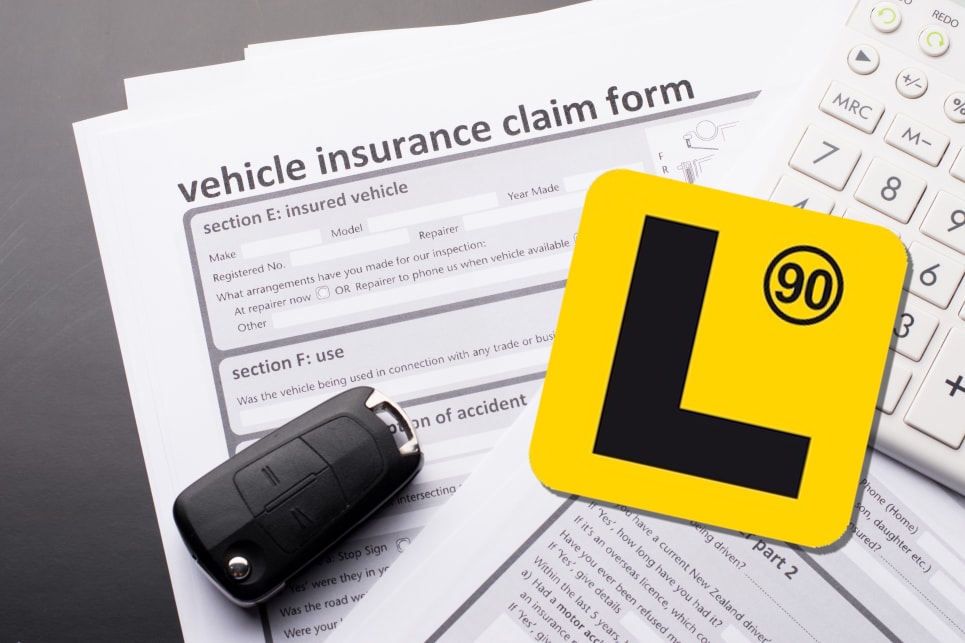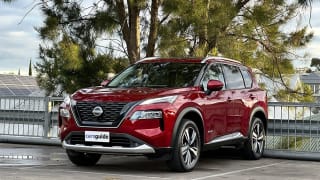
How to choose the right insurance for Learner drivers

There are some people - cruel types perhaps - who would suggest that the L plate that learner drivers are forced to display actually stands for Lunatic.
It's not even a suggestion that they set out to drive badly, or dangerously, more an acceptance that letting a human being with a dangerously inept, incompletely formed brain take charge of a potentially deadly machine, at speed, is a form of lunacy.
Indeed, the only thing possibly more crazy is being the licensed driver in the passenger seat, attempting to pass on your wisdom. And probably paying through the nose in insurance for the privilege of letting them drive your beloved vehicle.
When you imagine trying to get insurance for a learner driver, it might strike you as a tricky task, because the risk factors could be such that even insurance companies, who make their living by playing the odds, might run a mile from touching them. Fortunately, they've never met a risk they can't turn a dollar on.
Even if you're over 25, but you're a learner, the inexperienced excess will apply, because your lack of experience simply makes you more dangerous.
There's no question the statistics around young drivers are alarming. A truly staggering 45 per cent of all young Australian deaths from injury are caused by road-traffic crashes. That means driving a car, and particularly the first few years of doing so, are the leading cause of death (and disability) for young people in this country.
Even more tellingly, young drivers (meaning those aged 17 to 25) account for a quarter of all Australian road deaths, yet they make up only 10 to 15 per cent of our licensed drivers.
Adding a learner driver to your insurance, then, looks like one of those things in life - like changing nappies, or lending your children money - that you have to do as a parent, rather than one of the things you'd actually want to do.
The other choice, of course, is to let your teen get their own insurance policy, which will - ideally - allow them to start building up their own no-claim bonus.
Making the right choice will come down to cost and, of course, shopping around for the best option. There are plenty of comparison websites, to help you find the best insurance for learner drivers.
Insurance for learner drivers on parents' car
To say that being a young, learner driver puts you into a higher-risk group is to state the blazingly obvious.
And insurers base the costs they charge you on the likelihood of you having an accident, which means learners are going to have to pay more.
This means that it is absolutely vital that you tell your insurance company if your child is going to be slapping an L plate on your family car.
If your child is not on your policy, the insurer may refuse to pay the claim if they have an accident.
Driving your parents car - if at all possible - while you're a learner and being added to their insurance is generally going to work out a lot cheaper.
Adding a learner driver to your insurance won't be a problem, of course, because insurers are usually happy to cover your learner to drive your car, and even happier to make your premiums and/or your excess higher to cover it.
Just give your insurer a call, get a quote and then go out and compare if you can get a cheaper deal elsewhere.
To make sure you're getting the best car insurance for learner drivers, also check with your insurer about the cost difference between putting your child on your existing policy, and taking out a separate one for them.
Generally, it's going to be cheaper to add them to your policy, but sometimes insurers - keen to sign people up for life - will offer discounts for new customers who sign up for comprehensive cover.
Those discounts might only last a year, but they can obviously help reduce the initial cost.
Excess costs
The biggest hit you're likely to take when adding a learner to your insurance is in the excess department.
The insurer knows an accident is now more likely and is covering themselves for that eventuality. This is your way of accepting the risk you're taking.
There are various kinds of excess you might be up for, so be sure to check the details. There is often an age excess for drivers under the age of 21 (this can be up to $1650).
Some companies may also apply a separate learner driver excess, for the period they're wearing those glaring L plates. Even if you're over 25, but you're a learner, the inexperienced excess will apply, because your lack of experience simply makes you more dangerous.
You can, of course, negotiate your excesses down but you'll have to pay increased premiums to do so.
Remember that car insurance is a very competitive area in Australia and it's worth shopping around.
How can you get the best deal?
It's important to remember that there are several factors affecting the price of your premiums, from where you live to whether the car is garaged or parked on the street, and what kind of car it is.
How much you're going to drive is also considered, and if your young one is going to only be doing limited kilometres, this can help lower the costs.
Your credit history is another important and often forgotten factor.
The best way to reduce the amount you're paying, and your stress levels, of course, is to make your teenager the best driver possible, and this means getting them adequate driver training and talking to them, a lot, about things like attitude, safety and speeding.
A learner who racks up speeding fines, or has silly minor bingles, is going to be harder, and more expensive, to insure.
What about after they finally get their licence?
As your teen finally moves on to their P plates - red and then green - be sure to notify your insurer immediately, because they'll adjust the price of your policy accordingly.
Car insurance for learner drivers with their own car
If you're a young learner driver with a car of your own, then good for you, and you will be able to insure your car, but it's certainly going to cost you extra.
All you can do is compare quotes online as they relate to your circumstance, and be prepared to pay.
On the plus side, you will be building up your no-claim bonus from a younger age and stage, as long as you don't have any accidents.
Frankly, driving your parents car - if at all possible - while you're a learner and being added to their insurance is generally going to work out a lot cheaper.
Temporary car insurance for learner drivers
But what if you want temporary car insurance, as a learner, for a day or a week, or a month?
Again, such things are possible, but obviously it's going to be more expensive, both because it's short term, and because you're a learner and/or inexperienced driver, which will raise the costs.
Have you added a learner driver to your car insurance, and was it expensive? Tell us in the comments below.
CarsGuide does not operate under an Australian financial services licence and relies on the exemption available under section 911A(2)(eb) of the Corporations Act 2001 (Cth) in respect of any advice given. Any advice on this site is general in nature and does not take into consideration your objectives, financial situation or needs. Before making a decision please consider these and the relevant Product Disclosure Statement.










Comments